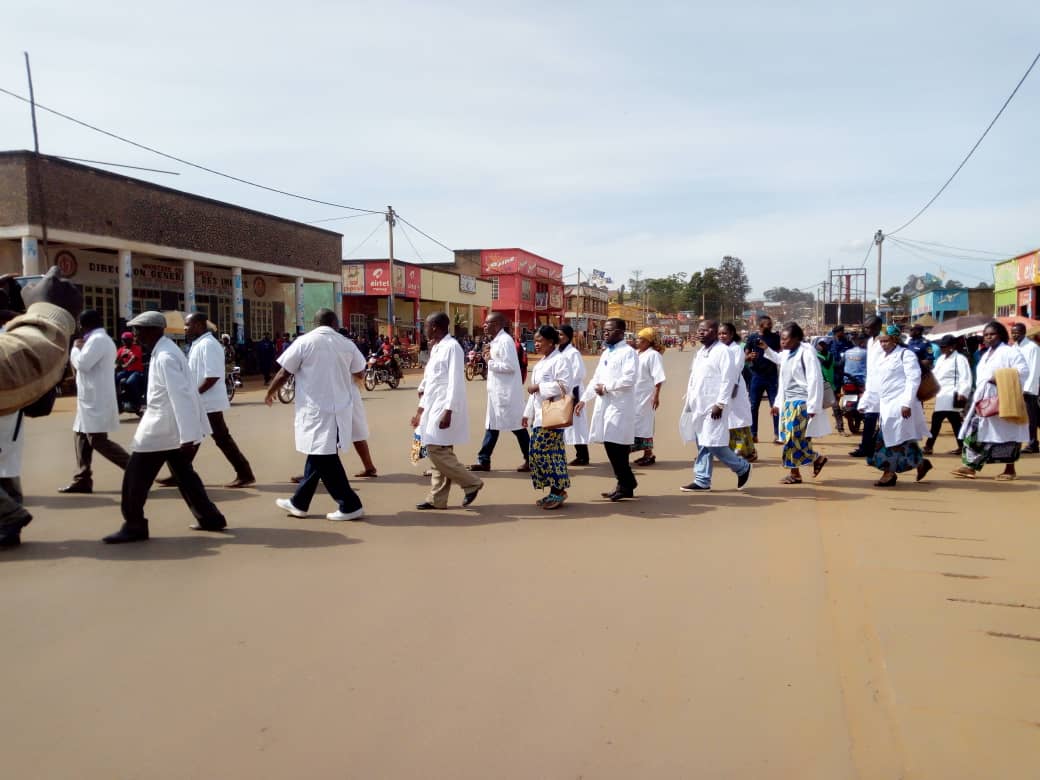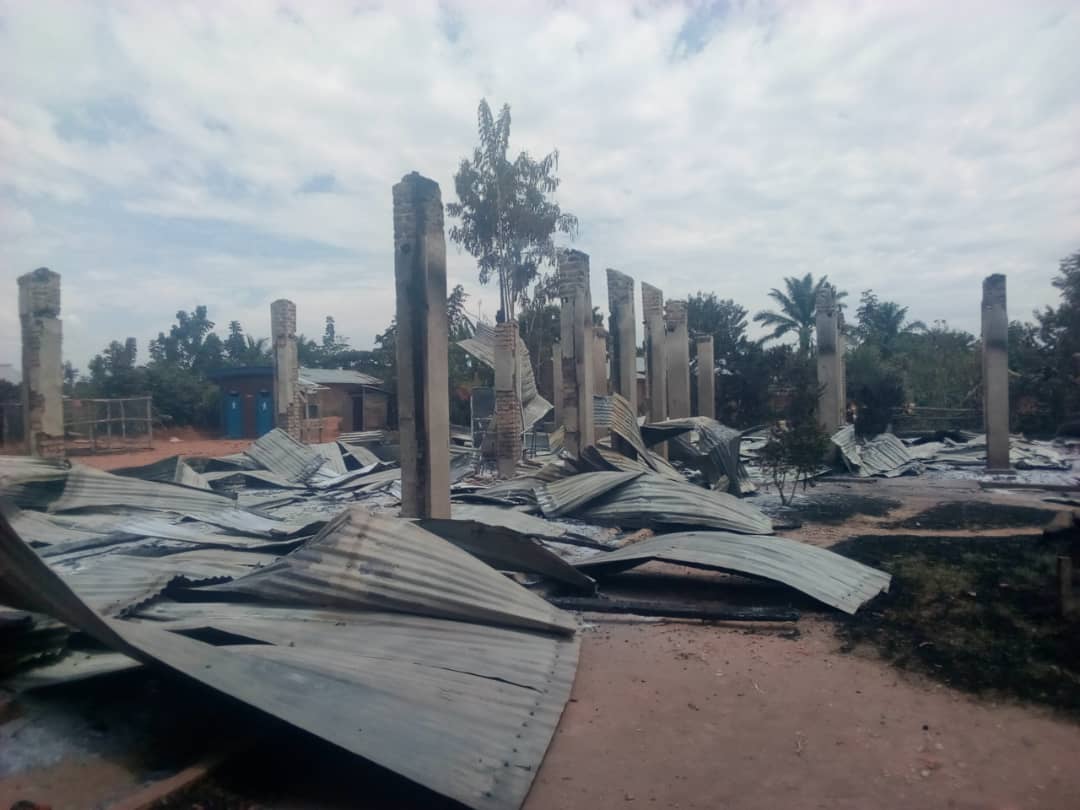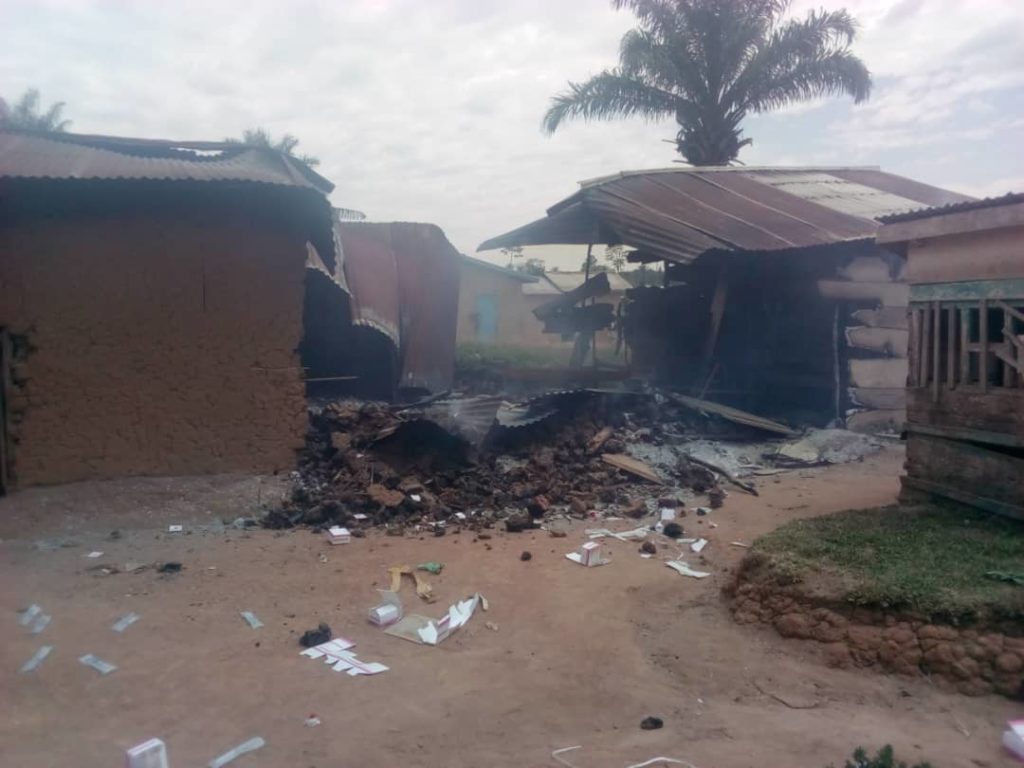
Author Elie Kasindi Kabululu
This blog post was written by Elie Kasindi Kabululu, an infection control nurse who is Deputy President of the Nursing Association and Coordinator of the Infection Prevention team at the Centre Medical Evagelique (CME) Nyankunde Hospital, located in the Northeast corner of the Democratic Republic of the Congo (DRC) that has experienced internal and cross-border conflict that has complicated the DRC’s ability to contain an ongoing Ebola crisis.
For the past nine months, the Democratic Republic of the Congo (DRC) Ministry of Health, the World Health Organization, and other partners have been dealing with the very complicated Ebola outbreak in North Kivu province and Ituri in East of the DRC. More than 1,705 cases and 1,124 deaths have been reported; 102 health worker acquired the disease and 34 of these workers died.
My wife and I were very concerned when she was under observation for 21 days as a first-line contact of a physician, Dr. Suzane, who died of Ebola in the clinic Sante Plus. Fortunately, she did not develop any symptoms of the disease.
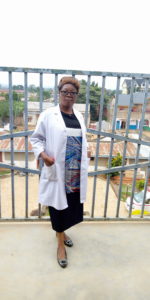
The author’s wife, Yvette
The Ebola responders are facing many challenges in their life-saving duties because of the recurring attacks of armed groups and a lack of engagement of the affected community. Since the beginning of the current outbreak, the more than 147 attacks of healthcare facilities and Ebola Treatment Centers have been reported, including the burning of some Centers.
When these attacks occur, the responders are limited in their ability to move in the community, so that we are unable to access the Ebola-affected communities to trace contacts, resulting in a large number of preventable transmission incidents in the community.
After the last attack on our city, we started a strategy of dealing with the capacity-building of the local community members to perform some basic Ebola care (such as doing a secure burial and decontamination of sites) when the staff cannot move.
This Ebola outbreak is exacerbated by armed groups threatening and targeting the people who are receiving assistance such as hand washing materials, food assistance, and vaccinations. Yesterday we tried to convince the people of Isonga village where a nurse was killed few months ago, to accept decontamination and vaccination after the death of many people in the village from Ebola. Unfortunately we have not been able to win the trust of the community. We are now planning meetings with the local leaders to try to gain their support.
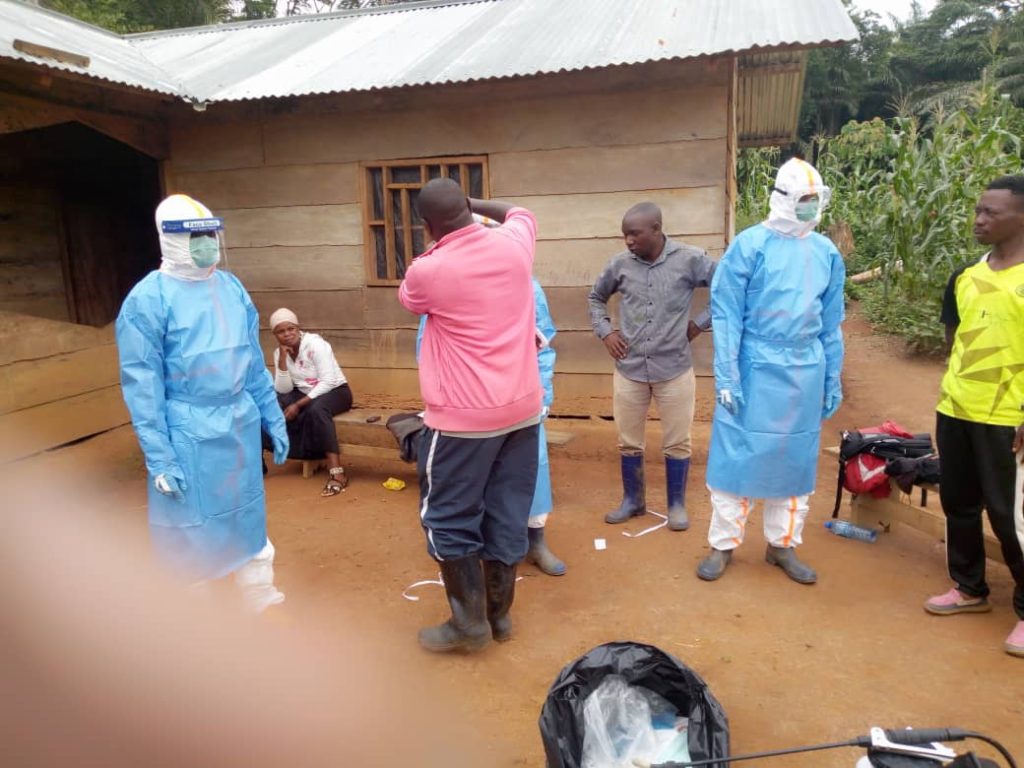
Training community members in disinfection and containment of Ebola
Threats of further attacks against the Ebola responders looms. The militias are still targeting attacks on all of the housing accommodations of the staffs, Ebola Treatment Centers and other facilities.
A few weeks ago, the International Health Regulation Emergency Committee met to examine the high risk of regional spread of Ebola. The outcome of the meeting was expected to be very dangerous, as cross-border traffic would be suspended. Fortunately, the committee did not do so; instead, its recommendations included redoubling efforts to detect cases earlier, cross-border collaboration, exclusion of the restrictions on the international travel and trade.
The health provider workers are still very exhausted and dealing tirelessly with their live-saving duties. But they continue to face serious challenges. A few days ago, the health workers of Butembo mounted a demonstration to express their concerns about the recurring attacks on the facilities and Ebola Treatment Centers in the city. They have threatened to strike if the security is not improved.
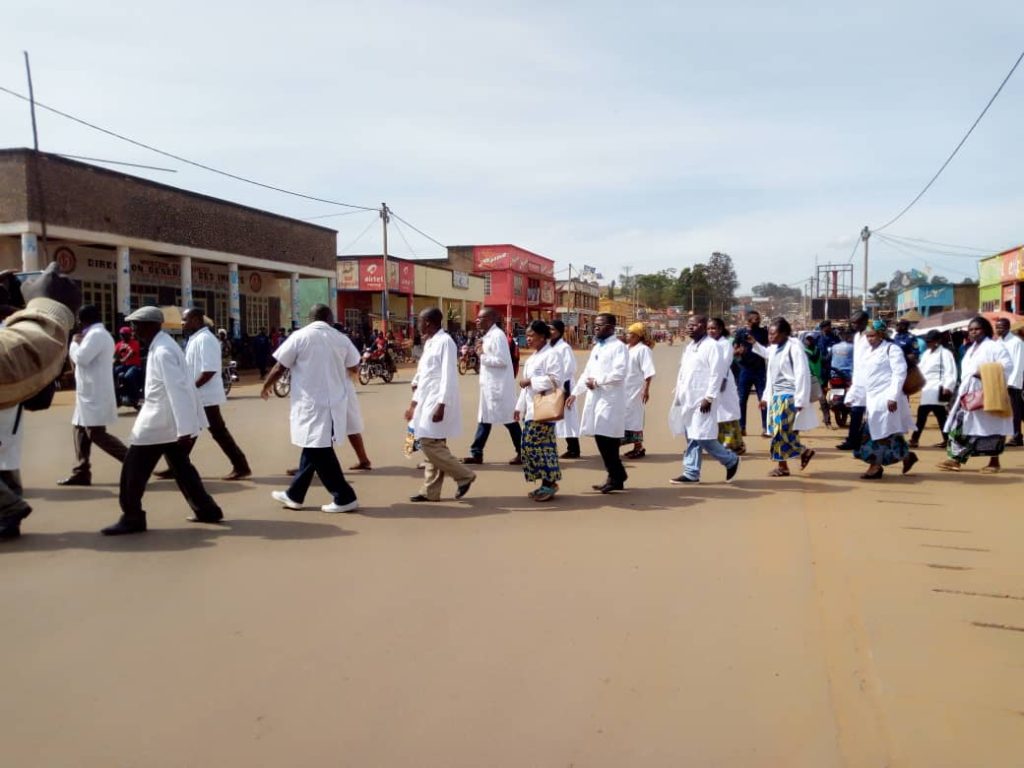
Health workers demonstrating about unsafe conditions in Butembo
The Ebola response is not only the challenging because of local armies and local community mistrust but because of recurring attacks of the Uganda rebels. Since the beginning of this month, four attacks have been reported in our area at Chabi , Mangoko, and Boekene , near the Beni airport. The attacks often include kidnapping of health care workers and the public. Among the people kidnaped at Chabi, most of the hostages have been released but the nurses remain in captivity despite many efforts to secure their release. The rebels are looking the health worker to take care of them. This is disheartening and depressing for all of our health workers who are committed to taking care of people living desperately in this difficult area of the DRC. Most of them are not receiving either the government salary or any support from international agencies, but they are committed to continuing to care for the desperate community members who are unable to pay the healthcare fees.
We have launched a fundraising campaign to raise some relief funds for the local healthcare workers who are putting their lives on the line with little pay to prevent the spread of Ebola and care for those who contract it. This is a humanitarian crisis and we would be grateful for any support people can provide via this link: https://gogetfunding.com/need-of-assistance-of-the-d-r-c-health-provider-working-in-the-frontline-of-humanitarian-crisis/
[caption id="attachment_14878" align="alignleft" width="150"] Author Elie Kasindi




